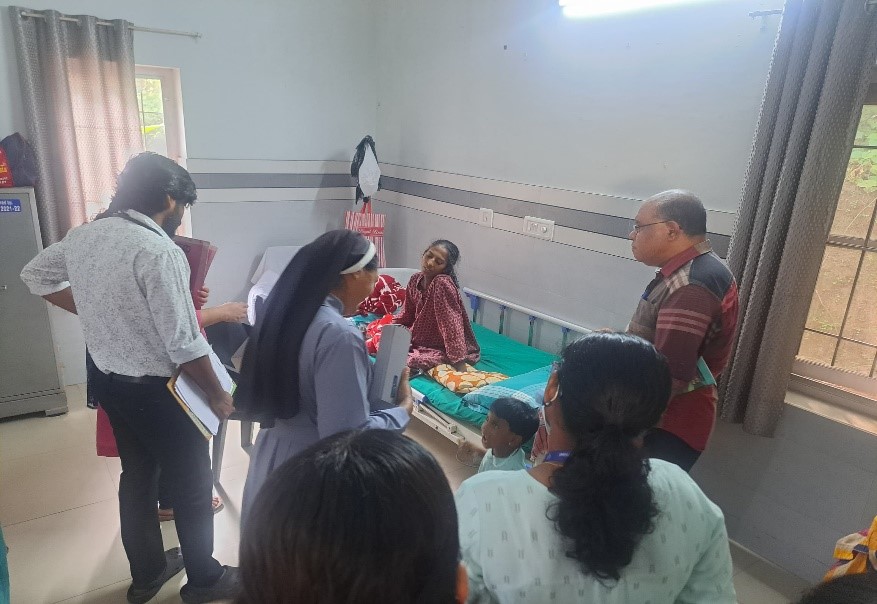Dili, January: In Timor-Leste, where access to quality healthcare remains a challenge, many individuals face life-limiting illnesses without adequate support. Recognizing this critical need, the government has embarked on a journey to strengthen palliative care services.
A significant milestone in this endeavor was the dispatch of four health professionals to the Institute of Palliative Medicine (IPM) in Calicut, India, last year for a 21-day intensive training program.
This program, supported by the Southeast Asia Regional Office (SEARO) of the WHO and WHO Timor-Leste, equipped Dr Lucio Frederico Babo Soares, Dr Eugenio Soares, Dr Isidoro de Sousa, and Sra Teresinha da Costa with essential knowledge and skills in palliative care.

Palliative care is an integral component of universal health coverage, focusing on improving the quality of life for individuals with serious illnesses. It encompasses a wide range of services, including pain and symptom management, emotional and psychosocial support, and practical assistance to patients and their families. Recognizing its importance, the World Health Assembly in 2014 urged member states to integrate palliative care into their health systems, emphasizing a primary healthcare-centered approach.
Currently, palliative care services in Timor-Leste are limited. While the National Hospital Guido Valadares (HNGV) operates a 10-bed inpatient facility, dedicated palliative care specialists are scarce. Recognizing this gap, the government has designated Lahane Hospital as the national hub for palliative care, establishing a four-member technical committee to guide service development.
“Palliative care is not merely about easing pain,” said Dr Arvind Mathur, WHO Representative. “It's about restoring dignity, providing comfort, and ensuring that no one faces their final journey alone. It is a fundamental aspect of compassionate healthcare that every individual deserves.”
At the IPM in Calicut, the Timor-Leste team underwent rigorous training, encompassing both theoretical and practical components. "The program provided a comprehensive overview of organizing and managing palliative care services, complemented by invaluable hands-on experience," stated Dr Suresh Kumar, Director of IPM. "The team demonstrated exceptional dedication and enthusiasm throughout the training, and we are confident that they will become valuable assets in strengthening palliative care services within Timor-Leste."
Dr Eugenio Soares, one of the participants, shared his experience: "The training at IPM was truly enriching. I gained practical knowledge in managing inpatient and outpatient care, conducting home visits, and effectively addressing pain management. The patient-centered approach at IPM was exemplary, emphasizing timely and comprehensive care for all."
To ensure the sustainability and expansion of palliative care services, the Ministry of Health plans to establish a dedicated national program, leveraging the expertise of HNGV. Key priorities include:
- Defining clear service standards and protocols.
- Ensuring the availability of essential equipment and medications.
- Developing comprehensive training programs for healthcare workers at the primary and community levels.
- Strengthening referral systems to facilitate seamless access to specialized palliative care.
By investing in capacity building, developing a robust infrastructure, and fostering a multidisciplinary approach, Timor-Leste is laying the foundation for a comprehensive palliative care framework.
